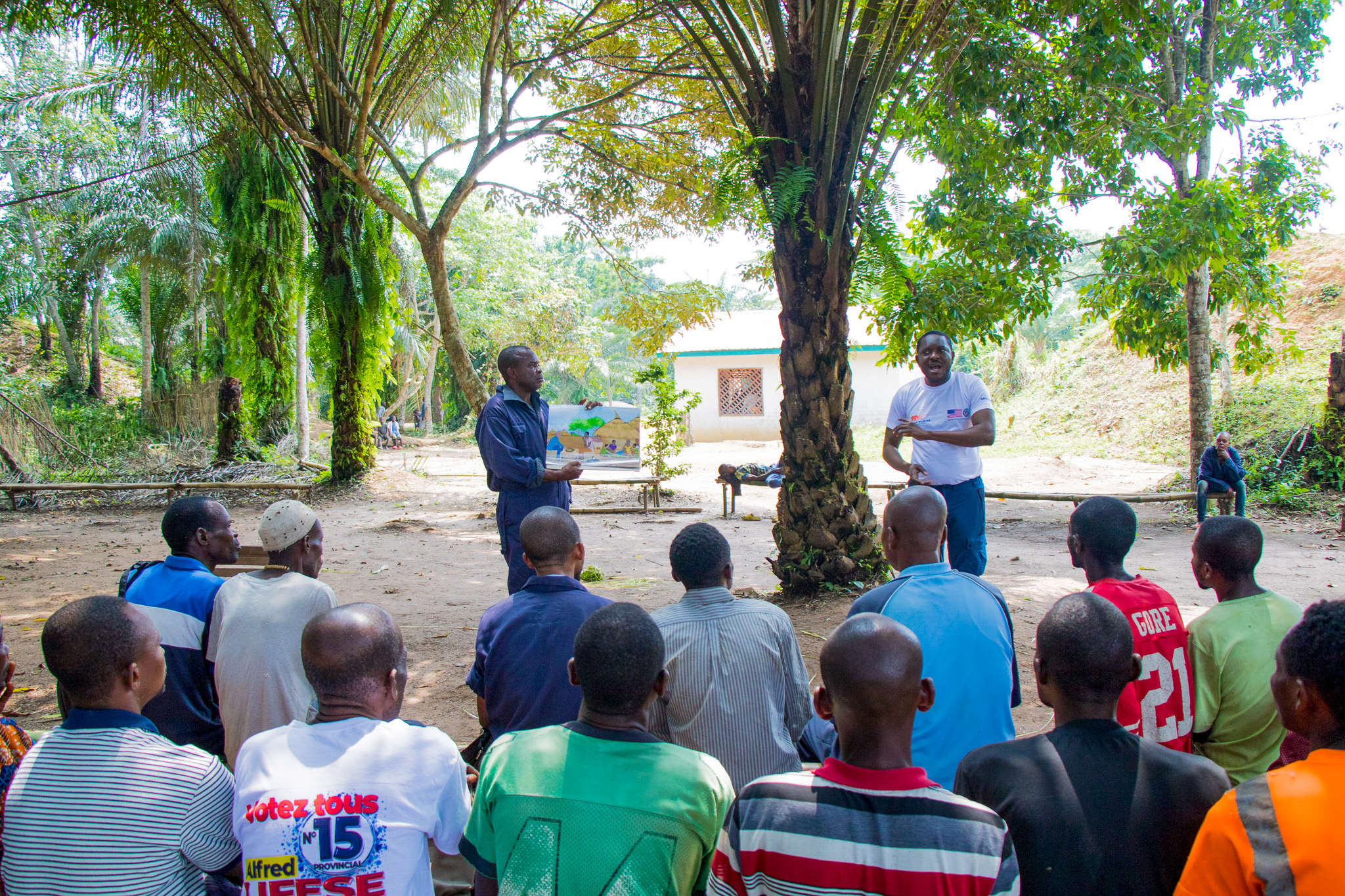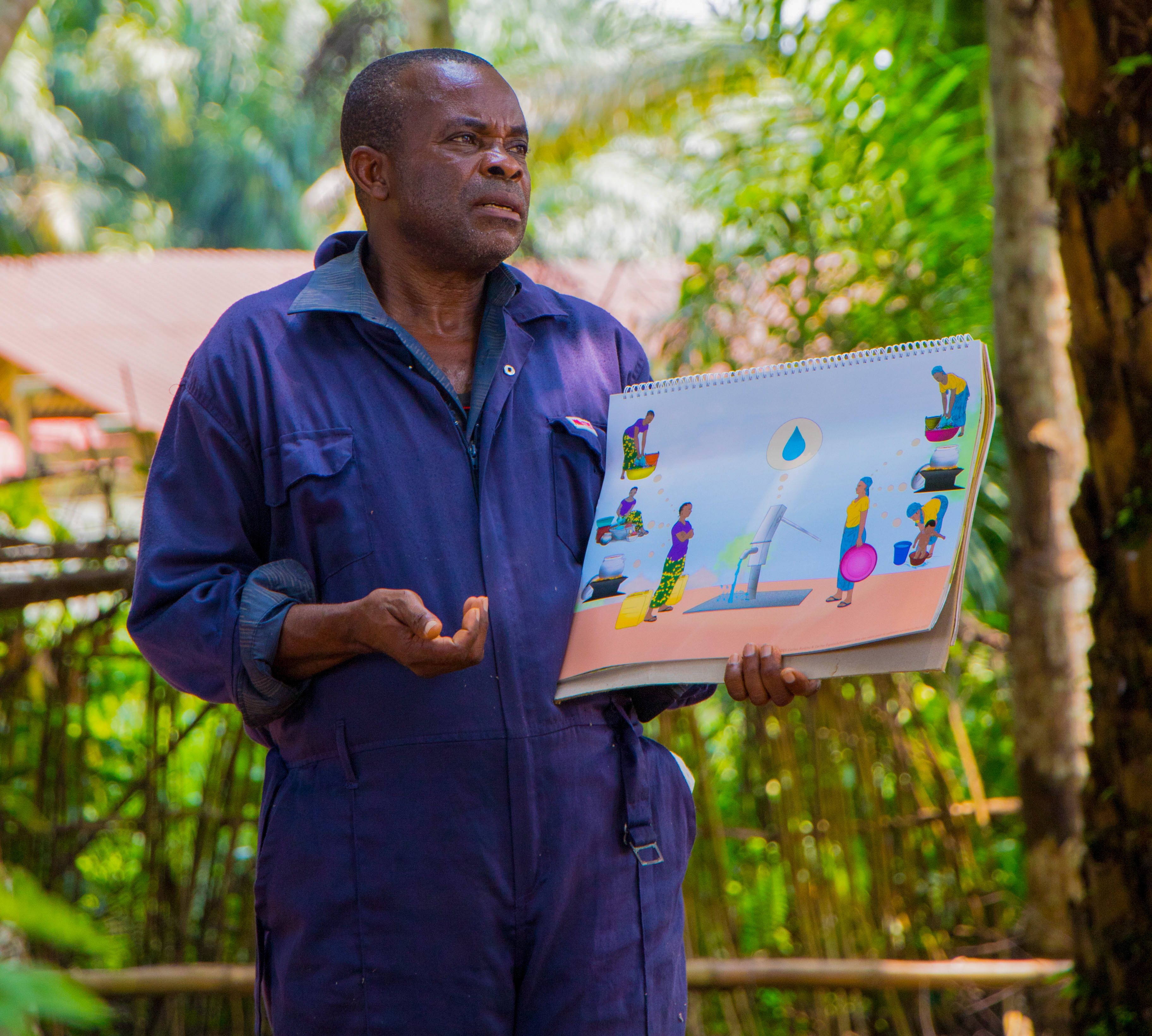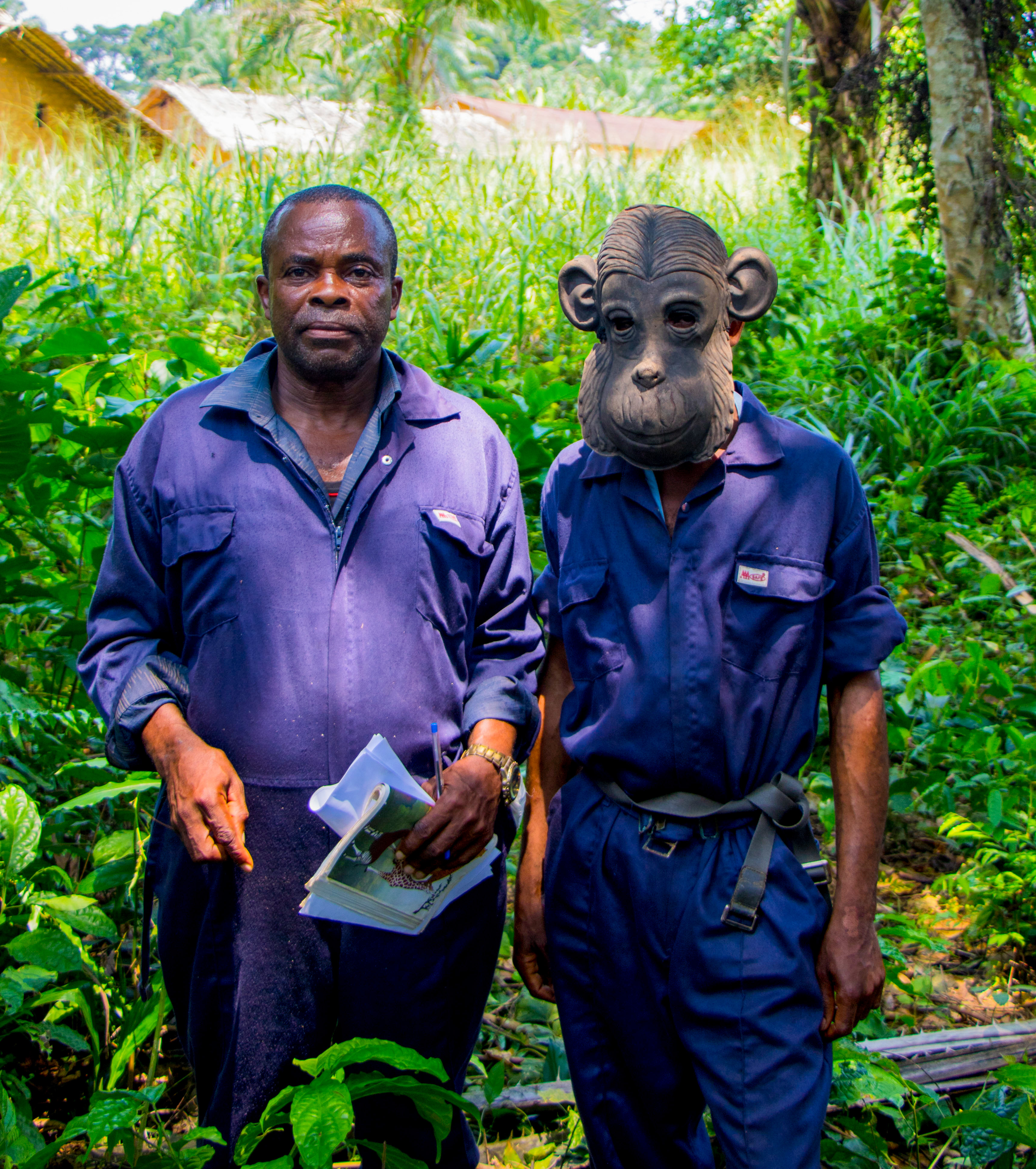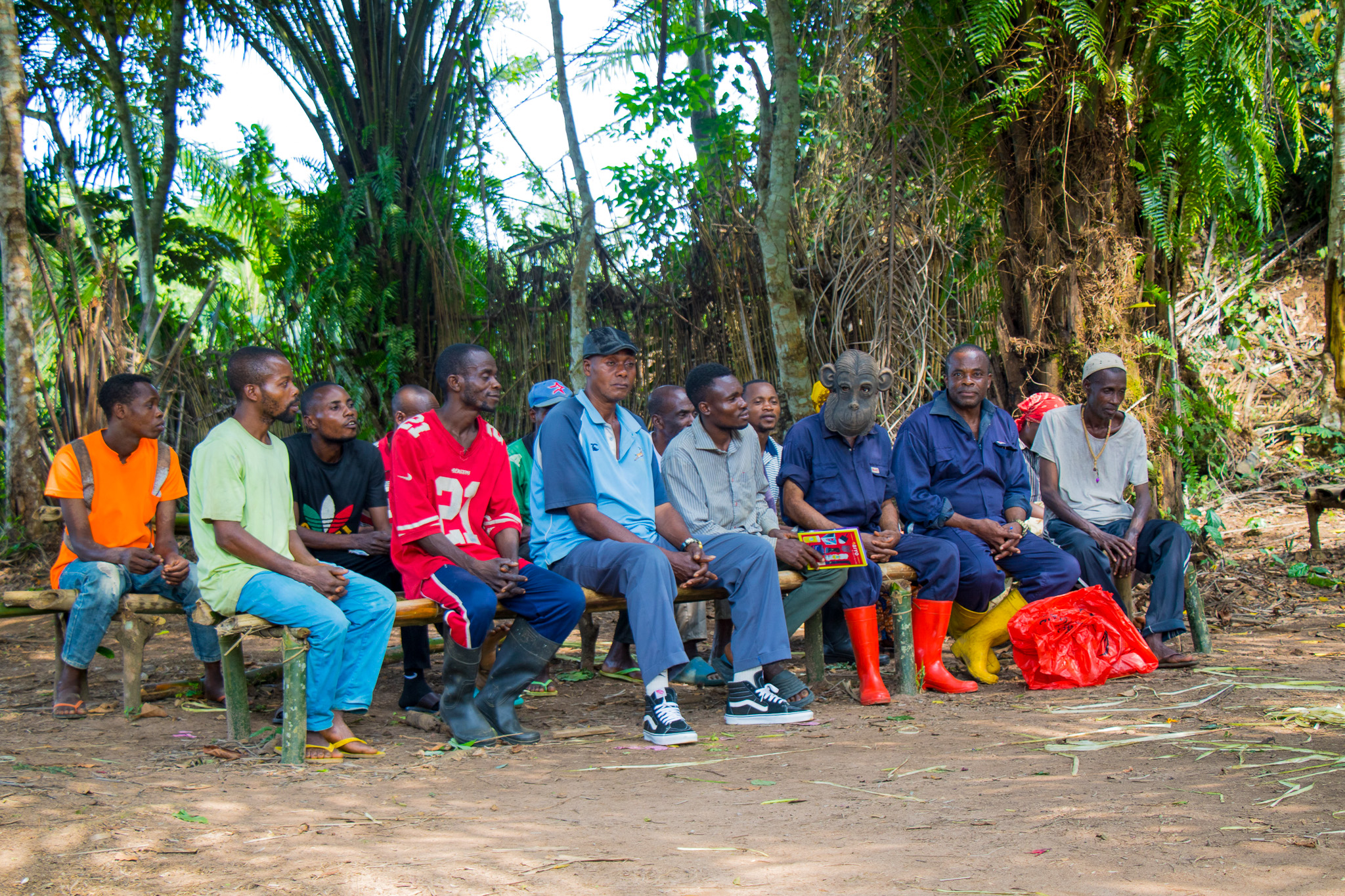Ayolo Lokolo And The Ghosts From His Past

Jean Ayolo Yokolo and AWF Senior Social Safeguards Officer, Dodo Moke at one of their presentations to the scouts
At first light in Likunduamba, the forest wakes before the village. The Maringa–Lopori–Wamba (MLW) landscape, a mosaic of community forests and peat-rich swamps, is home to some of the Congo Basin's last strongholds for bonobos.
Here, the African Wildlife Foundation (AWF) collaborates with local communities to secure land tenure and implement practical protection measures. Among the volunteers is Jean Ayolo Yokolo. Once a hunter, he now leads a team of scouts for Ilima Feke‑Feke Lomako (EFL), a community concession recognized under the MLW land‑use plan.

Jean Ayolo Yokolo during one of his presentations in Likunduamba
“I cannot return what I took,” Ayolo says. “But I can guard what remains and help others choose differently,” he says.
Recognition of the EFL concessions began in 2016 with community requests and AWF support; by 2017, a legal status and land-use plan were in place. Today, Ayolo commands—without pay—a 40‑member unit tasked with deterring illegal hunting, removing snares, recording wildlife signs, and briefing village elders after each mission.
Temptation still knocks during lean months, especially when outside buyers arrive with cash in hand. Ayolo counters this with transparency—maintaining daily logs, sharing patrol plans, and holding open briefings with village leaders. "If I'm accountable, I'm less likely to drift,” he says. The result is credibility earned step by step: skeptical elders now call him to mediate disputes, and young men who once hunted with him ask to join the unit.
Change has not been easy, and his new work does not erase the past.
“Quitting a trade is not the same as forgetting it,” he says. “The habits follow you.”
Leaving the past behind: unlearning the hunt
The unit moves out before sunrise in two files, feet quiet on red clay. Packs are light because distance, not weight, decides the day.
The team covers roughly ten to twelve miles of broken terrain, stepping over roots as thick as baseball bats. Night falls fast beneath a canopy as tall as a ten‑story building. As the forest exhales, the patrol keeps watch in pairs.
Bokedo Ekongo, Deputy Chief of the Likunduamba group, adds:
"I'm proud of this team. I don't worry about who will replace him because he shares his knowledge with the youth.”
The partnership behind the patrols: Ayolo and Lokoti

Ayolo Lokolo and Lokoti Gabriel, a passionate forest ranger, proudly wears a bonobo-inspired mask, symbol of his dedication to Bonobo protection.
Ayolo’s closest collaborator is Lokoti Gabriel.
“Ayolo is not just a leader. He’s an example. A man ready to sacrifice for his team,” Lokoti says of Ayolo.
The EFL concessions stretch across lowland rainforest cut by tea‑colored streams that feed the Lopori and Maringa rivers.
“EFL represents the first forest concessions ever granted by the Congolese government to communities. AWF is proud to have pioneered this process, and above all, is deeply moved to see how the group has embraced conservation as a daily responsibility that truly belongs to them,” Antoine Tabu, the AWF Country Director in DRC, says.
The patrol’s first response is dialogue. Names are recorded, warnings are issued, and patterns are mapped for follow-up. Youth outreach runs in parallel through lessons about bonobos, elephants, and laws, so that tomorrow's choices are informed.

Jean Ayolo Yokolo and the community scouts safeguarding bonobos and forests in DR Congo’s Maringa–Lopori–Wamba landscape.
“Most of the hunters we intercept come from neighboring villages, those who refused to embrace conservation. Their forests have been emptied of animals. They enter because wildlife still lives here,” Ayolo says.
Blending knowledge: local experience and science
AWF supported Likunduamba in securing legal recognition of its concessions—among the first of their kind granted to communities in the DRC—linking tenure to stewardship. Patrols now tie daily practice to long‑term protection, with elders briefed after missions and young people trained to read the forest’s signs.
“Leadership for wildlife begins at home,” Ayolo says. “When communities understand why protection matters, we become the first and best guardians of the forests that raised us.”